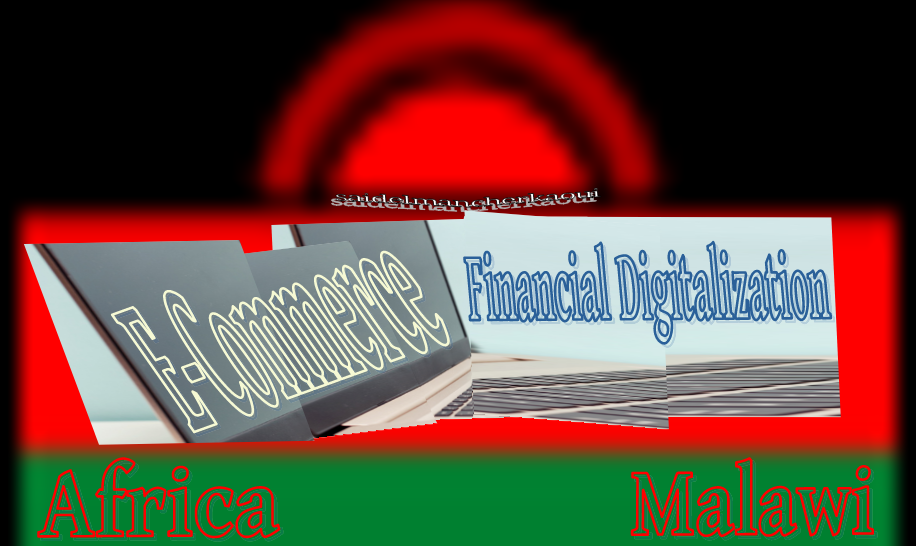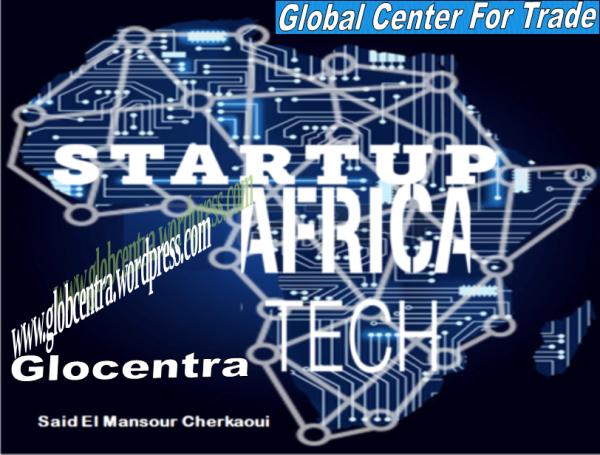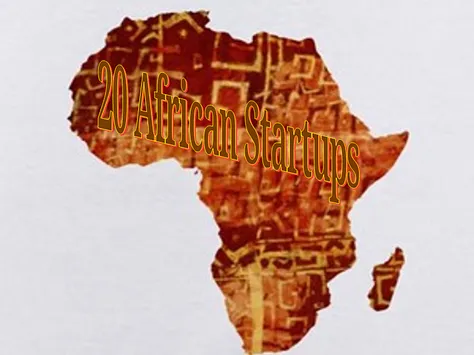
- – Contact author: Said El Mansour Cherkaoui, Ph.D.
To contact the Author for public speaking, advising, or consulting engagement, please send an email to: saidcherkaoui@triconsultingkyoto.com

You Need to Know more about TRI CK USA
You Want to Introduce Yourself and your Business or Project
Please complete and Submit this form


★ • Said El Mansour Cherkaoui Ph.D. ★•★ Said Cherkaoui Ph.D. – 2/25/2024
📯The Simandou mountains, after decades of anticipation, the stage is set for the world’s largest mining investment.
🇬🇧 Rio Tinto, a British mining company, and 🇨🇳 Chinese State-Owned Enterprises (SOEs) have joined forces to unlock the secrets hidden within Simandou’s ancient peaks.
Mining in Simandou will have a profound impact on Guinea’s economy:
Revenue Generation: Simandou’s iron ore reserves are estimated to be among the largest globally. Guinea will witness a surge in export revenues from iron ore sales.
The influx of foreign investment and royalties will bolster Guinea’s fiscal position.
Employment Opportunities: Mining projects like Simfer will create thousands of jobs—from skilled engineers to laborers. This employment boost will alleviate unemployment and enhance livelihoods.
Ancillary services, such as logistics, maintenance, and catering, will also generate employment.
Infrastructure Development: To support mining activities, Guinea will invest in infrastructure. Roads, railways, and ports will improve connectivity, benefiting other sectors as well.
Energy infrastructure will expand to meet the industry’s demands.
Foreign Direct Investment (FDI): Simandou’s allure will attract more FDI. International companies will invest in mining operations, technology, and equipment.
This injection of capital will stimulate economic growth beyond the mining sector.
Trade Balance and Currency Stability: Iron ore exports will contribute significantly to Guinea’s trade balance. Increased exports will offset imports, enhancing currency stability.
The Guinean franc (GNF) may strengthen against other currencies.
Local Supply Chain: The mining industry will create demand for local goods and services. Suppliers, contractors, and small businesses will benefit.
Local procurement will foster economic linkages.
Skills Development and Training: The mining sector will invest in skills development. Training programs will empower Guineans with technical expertise.
Knowledge transfer from international experts will enhance local capacity.
Social and Community Development: Responsible mining practices will include community development initiatives. Investments in education, healthcare, and infrastructure will uplift local communities.
Simandou’s success should translate into improved living standards for nearby residents.
Diversification and Economic Resilience: Guinea’s economy has been heavily reliant on agriculture. Mining diversification will reduce vulnerability to commodity price fluctuations.
A robust mining sector will contribute to overall economic resilience.
Challenges and Mitigation: Environmental and social impacts must be managed carefully. Sustainable practices and community engagement are crucial.
Revenue transparency and governance are essential to prevent resource curse.
📯🇬🇳Guinea will host the world’s largest mining investment.
After decades,🇬🇧UK-based Rio Tinto and 🇨🇳Chinese SOEs have decided to mine the Simandou mountains and finalize the Simfer and WCS projects.
Yet, tensions are increasing within the country and in Western Africa.
After 27 years of wrangling, twists, and turns, Rio Tinto’s board has committed to realizing the world’s largest mining project in Guinea, highlighting the importance of Africa as the meeting point of Western and Eastern energy geopolitics and transition strategies. Rio Tinto, with partners from all around the world, including 🇨🇳 China’s Chinalco, the world’s largest aluminum producer, and Baowu, the world’s biggest steel producer, is realizing a series of giant infrastructures.
By the end of the decade, mines, railways, freeways,s and ports will make it possible to connect the Simfer and WCS mines in the Simandou mountains, in south-eastern Guinea, and close to the border with🇨🇮Ivory Coast, to the Atlantic Coast.
From here, high-grade iron ore mined in Guinea, among the purest assets of this commodity available in the world, will be available to global markets and, in particular, to major steel and aluminum producers in China. They are desperate to lower the emissions from hundreds of plants across the country and ready to commit billions to the world’s largest project of this kind.
Energy transition and energy geopolitics meet once again in Guinea.
The government has long supported the implementation of these projects. The astonishing price tag is around $20 billion, larger than many world-class oil and gas projects discussed over the last two decades. The Chinese government is fully committed to sustaining such international infrastructures to decarbonize several industries, expanding the energy and mining diplomacy in Africa, while partnering with Western firms in such endeavors, absorbing critical know-how. Prices of critical raw materials have been very volatile over the last few years. Geopolitics and economic crises influenced such trends.
Partners of Guinea’s projects bet on growing demand, triggered by the energy transition, and lasting revenues. Nevertheless, since the 2021 Guinea coup by Mamady Doumbouya, the junta has grown in power and has isolated the country from its neighbors. The appointed government has just been dissolved without an explanation, while the regime has ordered to close the borders.
Free and democratic elections are expected in just 10 months…

Africa is Lightening the World and Building Trains To Extract the Treasures of the Lands
Africa Between the West and the East Sitting at Two Chairs at the Same Time?
![]() Lobito corridor: Hoping to break China’s grip on African ore – DW – 02/08/2024
Lobito corridor: Hoping to break China’s grip on African ore – DW – 02/08/2024
The Lobito Corridor has become a focal point in the geopolitical and economic competition between the West and China in Africa.
- Lobito Corridor vs. TAZARA (Tanzania-Zambia Railway Authority):
- The United States and the European Union are keen on constructing a 1,300-kilometer railway from the Port of Lobito in Angola to the border town of Lua, with an additional 400 kilometers extending into the Democratic Republic of Congo (DRC) to the mining town of Kolwezi.
- Meanwhile, China has plans to rehabilitate the TAZARA, which connects Tanzania and Zambia.
- These competing rail projects signify the start of President Joe Biden’s strategic competition with China on African soil.
- The West aims to use the Lobito Corridor to transport strategic minerals from the DRC and Zambia to the US and the EU, while China focuses on TAZARA.
- Citizens of these African countries should ensure watertight agreements to safeguard their interests, as both power blocks pursue their own goals1.
- China’s TAZARA Proposal:
- Chinese investors have proposed investing over $1 billion in the Tanzania-Zambia Railway Authority (TAZARA) under a public-private partnership model.
- China Civil Engineering Construction Corporation (CCECC) is negotiating the concession to operate the railway line.
- The revitalization of TAZARA is seen as an important project for freedom and peace in the new era, according to the Chinese Ambassador to Zambia1.
- Lobito Corridor and the West’s Interests:
- The West’s support for the Lobito Corridor is interpreted as a geopolitical move.
- By linking the Copper Belt to the Atlantic Ocean, the West aims to maintain a stake in the global value chain for critical energy transition minerals.
- These multi-billion-dollar investments are not benevolent; they serve the West’s interests in securing access to vital resources2.
- The New Great Game in Africa:
- The Lobito Corridor serves as the battleground where the US and China vie for influence and control.
- An intricate chessboard where nations strategically compete for dominance in infrastructure projects3.
In this high-stakes game, the Lobito Corridor and TAZARA represent more than mere railways—they symbolize the struggle for power, resources, and influence on the African continent.
Washington is supporting the Lobito corridor, a $2.3 billion plan to upgrade an existing line that runs to the Atlantic port of Lobito from the Democratic Republic of Congo and build about 800 kilometers (500 miles) of new track into Zambia
In collaboration with the European Union, Washington is actively supporting the development of the Lobito Corridor. This transformative economic corridor aims to connect the southern Democratic Republic of the Congo and northwestern Zambia to regional and global trade markets via the Port of Lobito in Angola. Here are the key points:
Lobito Corridor Overview:
- The Lobito Corridor is a critical infrastructure project from the Democratic Republic of the Congo (DRC) to the Atlantic Ocean.
- It facilitates trade and connectivity by providing a direct route from the DRC to the Angolan port city of Lobito.
- The corridor aims to enhance the regional circulation of goods and promote mobility for citizens.
U.S.-EU Partnership:
- The United States and the European Union have joined forces to support the Lobito Corridor’s development.
- They are launching feasibility studies for a new greenfield rail line expansion between Zambia and Angola.
- This collaborative approach demonstrates the power of international partnerships in infrastructure development.
Economic Benefits:
- Once fully operational, the corridor will enhance export possibilities for Zambia, Angola, and the DRC.
- It will reduce logistics costs and the carbon footprint associated with exporting metals, agricultural goods, and other products.
- Investments in digital access and agricultural value chains will increase regional competitiveness.
Immediate Next Steps:
- Pre-feasibility studies will be conducted for the construction of the new Zambia-Lobito railway line from eastern Angola through northern Zambia.
- This builds upon the initial U.S.-led support to refurbish the existing railway section from the Lobito port in Angola to the Democratic Republic of the Congo.
The Lobito Corridor and TAZARA represent not only infrastructure advancements but also geopolitical maneuvering in the quest for critical resources.
The modernization of the Tanzania-Zambia Railway (TAZARA) and the construction of the Lobito Corridor are indeed significant developments in Africa. Let’s delve into the context and implications:
Lobito Corridor:
- The United States and the European Union are actively involved in constructing the 1,300 km railway that stretches from the Port of Lobito in Angola to the border town of Lua, with an additional 400 km extension to the mining town of Kolwezi in the Democratic Republic of Congo (DRC) 1.
- This ambitious project aims to enhance transportation infrastructure, facilitate trade, and boost economic connectivity in the region.
- The Lobito Corridor is strategically positioned to link the Atlantic coast to the mineral-rich regions of central Africa.
Tanzania-Zambia Railway (TAZARA):
- China has proposed a $1 billion investment in rehabilitating the TAZARA under a public-private partnership (PPP) model 1.
- The TAZARA railway, originally funded by Mao Zedong’s government in the 1970s, connects Tanzania and Zambia.
- China’s involvement in revitalizing TAZARA signifies its continued interest in African infrastructure development and resource access 2.
Geopolitical Rivalry and Critical Raw Materials (CRM):
- These multi-billion-dollar railway investments are not purely benevolent gestures. Instead, they reflect the geopolitical and economic rivalry between major powers.
- Both the West (represented by the US and the EU) and China are vying for access to critical raw materials (such as minerals) found in Africa.
- The Lobito Corridor and TAZARA projects serve as conduits for transporting these valuable resources.
- President Joe Biden’s announcement of the US Strategic Competition with China on African soil underscores the intensity of this rivalry 1.
- Senator Robert Menendez emphasized that China’s actions challenge the United States and the international community across various dimensions of power 1.
Safeguarding African Interests:
- African countries involved in these projects must negotiate watertight agreements to protect their interests.
- While the infrastructure development benefits the region, it’s essential to recognize that both power blocs are pursuing their own strategic goals.
🌍EXPLORE⛏️💰FURTHER🌍

- – Contact author:
- – saidcherkaoui@triconsultingkyoto.com
Africa Destiny: Low Blow to China BRI at Lobito
Said El Mansour Cherkaoui November 20, 2023
Africa Destiny: Zambia’s Bad Credit Bet for China and West Good Mining Gamble

When the Missionaries arrived, the Africans had the Land and … Continue reading
Belt and Road Initiative – BRI

Belt and Road Initiative: A Key Pillar of the Global Community of Shared Future … Continue reading
Africa Destiny: Zambia “Bad Bet” by International Creditors and Good for Mining






































